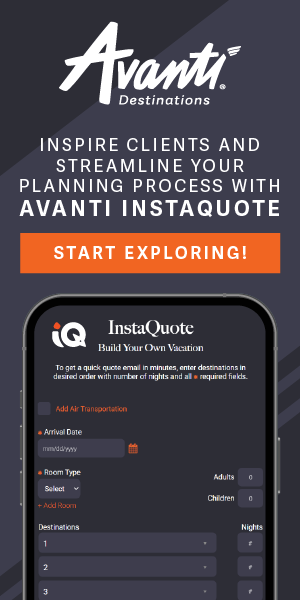How to Become Your Local Media’s Go-To Travel Expert
by Briana Bonfiglio
Photo: Katssoup / Shutterstock.com
Travel advisors have information about the world that journalists want. But how exactly do you become your local media’s trusted travel expert?
Betsy Goldberg, senior corporate communications director for Travelsavers and a former journalist, gave a presentation on the topic at TMR’s Travel Market Place West in Vancouver on March 5.
“Never forget that you are a travel expert,” Goldberg told advisors during the conference breakout session entitled Become Your Local Media’s Go-To Travel Expert. “You have something of value to share to the media.”
Here are Goldberg’s tips for grabbing the media’s attention and becoming their long-term source of information for all things travel-related.
Know what is newsworthy
Journalists want information and perspectives from travel advisors on a variety of relevant topics. They’re looking for story ideas and viewpoints that are “truly new, fresh, different, or counterintuitive – something that has a surprising twist to it that you wouldn’t really expect,” Goldberg said.
Before pitching a journalist, advisors should have a solid grasp on what’s newsworthy. This can be anything that impacts a newsroom’s audience, is a solution to a problem, or has a strong news hook. News outlets are also interested in big industry trends and your best travel tips and tricks.
An advisor’s pitch can offer insights on a current event, such as a geopolitical issue, natural disaster, airline strike, passport delays, or other major news that impacts travel; celebrities and popular culture, such as Taylor Swift or a popular amusement park; or a seasonal topic, such as spring break.
Write an attention-grabbing pitch
Once you have your topic, it’s time to write a pitch. First, your email should have a catchy subject line, such as “How to Score Travel to the Paris Olympics.” The body of your email should be short and sweet – only about two to four short paragraphs.
“Journalists are incredibly busy,” Goldberg said. “They do not have time to read an incredibly long email, and they will just delete it or move on to the next.”
The pitch should also offer a hard-hitting statistic or comparison illustrating the topic. Examples: Hotel prices have risen 300% in [insert city hosting event here] or the Icon of the Seas is the size of [inset number] football fields.
Finally, your pitch should clearly state who you are, including your credentials and where you are based, so the journalist knows you are credible and relevant to their local or niche audience.
Reach out to journalists
Now that your pitch is written, who do you send it to? Goldberg strongly advises making a media list, which is a list of journalists who will be interested in the stories you have to tell. They can be from local newspapers, print and online magazines, radio, television, or podcasts. Your town may not have a travel journalist specifically, so the editors of the lifestyle or business sections are your next best bet.
“You need to invest some time building a media list,” Goldberg said. “This does take time the first time you do it, but then after that, you’re just updating it.”
Research and find the right journalists to contact by finding their LinkedIn, Muck Rack, or X (Twitter) pages, or their personal website, and read up on the types of stories they write. Be sure to save their email address and take note of area of expertise, or “beat,” as it’s called in the news business.
“If you identify the wrong contact, 93% of journalists say the vast majority of pitches they receive are irrelevant,” Goldberg said. “So that’s why it’s important to spend the time on your list and find the best contact who is interested in your travel story.”
Ace the interview
After you send off your pitch, a journalist may reach out asking to interview you. There are several ways you can prepare to ace the interview and ensure the journalist will reach out to you again for all their future travel stories.
First, you want to make yourself available. When a journalist reaches out to you, respond immediately and ask about their deadline.
“They want you to respond quickly because they are on deadline, and their deadlines can be as little as an hour or two,” Goldberg said. “So really you can earn yourself a place on their list of trusted experts if you get right back to them and if you say, ‘Absolutely, I’m free in 45 minutes if you want to come by.'”
Next, ask the journalist to send their questions or interview topics ahead of time. Then, write your answers and practice saying them out loud before the interview. Your responses should be concise and conversational. Don’t use travel industry jargon.
“You need to practice, and you need to practice out loud. It is not enough to write in a Word doc word for word what you want to say to the journalist and read it over silently to yourself,” Goldberg said. “Yes, you’re a travel expert, yes, you’re talking about travel, which is your field, but you’re not used to talking to journalists. They’re a different audience.”
Another tip: Do not market yourself. “You will not be contacted again if you get too aggressive in promoting your agency,” Goldberg said. “You’re there to be a neutral expert, not a salesperson.”
Goldberg also notes that you should treat journalists like your best client: “friendly, helpful, appreciative of this opportunity, polite, and warm.”
Share the news
After your interview, Goldberg recommends setting a free Google Alert for your name and business name. This way, you’ll get a notification to your email inbox when the journalist publishes their story that mentions you online.
What do you do once the story is published? “You shout from the rooftops,” Goldberg said. “This is exciting!”
Share the story on your personal and professional social media pages. Engage with the post when the news outlet shares it on social media, as well. And be sure to keep in touch with the journalist about every three months with new story ideas.
It’s also a great idea to share the story with relevant clients.
“If you were quoted in a story about the summer Olympics in Paris, and you have clients going to the summer Olympics in Paris, why don’t you send them an email saying, ‘Wanted to share this with you, was thinking about you and your trip as I was talking about it.’?” Goldberg said. “And they may get a kick out of it, and it reinforces your credibilty with your own clients.”
So, what are you waiting for? Get researching, pitch-writing, and on your way to becoming your local media’s trusted travel expert.
























